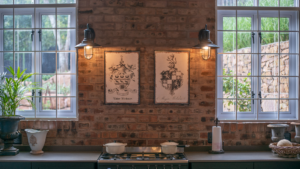Recently the Global Organised Crime Index published the Global Initiative Against Transnational Organised Crime, where it measured organised crime activity; we will look at what the Index revealed about the crime in South Africa.
The Global Organised Crime Index evaluates the levels of crime and resilience within the 193 UN member states. The Index collects the data about crime levels as it aims to assist in informing a global response towards the threat of transnational organised crime. Organised crime affects countries from every corner of the globe and poses many geopolitical challenges, such as political instability, forced migration, and conflict. For the Index to evaluate crime, they use two metrics that score crime from 1 to 10, lowest to highest organised crime levels, and these scores are based on their criminal markets score and their criminal actors score. The second metric is their resilience to deal with organised crime, which is also a score from 1 to 10, lowest to highest resilience levels.
The 193 countries within the UN member states were all given a score out of 10, with one being the least activity and ten being the highest. The results indicated that more than 75% of the world’s population live in countries with high levels of criminality and countries with low resilience to organised crime. The Index also indicated that Asia had the highest levels of criminality in all the continents.
Countries that were democracies also tended to experience higher levels of resilience to organised in contrast to authoritarian states. Additionally, state actors had the most dominant agents in preventing resilience as they instead facilitated the rise of illicit economies. One of the crimes that the Index found most pervasive of global criminal markets was human trafficking. Organised crime and criminal networks also saw an increase as the coronavirus pandemic gave criminals new opportunities to move contraband without much risk as they took advantage of there being lower staffing levels.
To measure crime, the Index divided crime into four criminal actor typologies- criminal networks, mafia-style groups, foreign actors and state-embedded actors and ten commodity-based criminal markets. The ten commodity-based criminal markets included crimes against flora and fauna, smuggling and human trafficking, arms trafficking, crimes involving nonrenewable resources, and the separate trades in cannabis, cocaine, heroin, and synthetic drugs.
Out of the 193 countries, South Africa ranked 19th as they received a criminality score of 6.63. Amongst the 54 African countries, South Africa ranked fifth. The African countries that ranked higher and had worse crime levels than South Africa were the Democratic Republic of Congo, Nigeria, Central African Republic, and Kenya. According to the Index, South Africa also had the highest ranking of organised crime among all the Southern African countries.
The five countries that had the highest scores as they had the worst scores for organised out of the 193 countries were the Democratic Republic of the Congo, which was in the top place, followed by Colombia, Myanmar, Mexico, and Nigeria.
The Index indicated that South Africa had a high criminal market ranking that was pushed up in the arms trafficking category, making the score an eight. The Index also found and listed incidents where gangs acquired weapons meant for destruction from the police armoury, which was one of the driving forces for the high murder rates that the country experienced.
The Index also found the country to have high drug trade as it scored 8.5 in this category. The findings from the Index indicated that South Africa was one of the countries in this region that is affected by the global heroin trade. The market for heroin was seen to be important in the major trans-shipment and destination states of South Africa and Mozambique as large quantities of the drug are imported in large quantities from Afghan.
For resilience, the Index looks at 12 indicators related to economic, political, legal and social measures. When it comes to resilience, South Africa ranked 42nd globally, and it was also second in this category on the continent. When it came to the measurement of non-state actors, South Africa received a score of seven. For national policies and law and international cooperation, the country received a score of 6.5.
The Index indicated the complex and multidimensional nature of global organised crime even though the criminal dynamics for each region and country greatly varied. It also highlighted the threat that organised crime has to development, justice, and human security globally.
The coronavirus pandemic might have increased criminal activity; however, it also highlighted the vulnerabilities, inequalities and systemic risk around the world. It also showed a need for global collaboration as this is the best way to respond and address the high crime levels.



